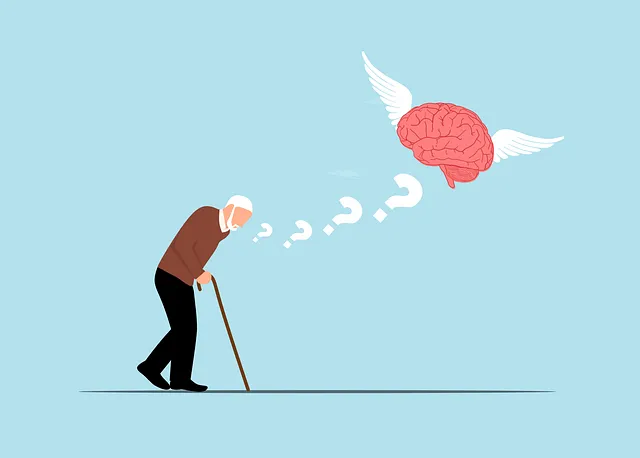Englewood Kaiser Permanente behavioral health services tackle stress through interactive workshops, combining theoretical knowledge with practical exercises like mindfulness and role-playing. They prioritize a supportive environment, encouraging open dialogue and peer support to enhance emotional healing and reduce mental illness stigma. Workshop effectiveness is assessed using diverse methods to measure outcomes and inform continuous improvement, aiming to empower attendees with tools for navigating life's challenges.
Stress management workshops play a vital role in empowering individuals to navigate life’s challenges. At Englewood Kaiser Permanente behavioral health services, we organize comprehensive programs designed to unravel the complexities of stress, its causes, and impacts on mental well-being. This article explores effective strategies for workshop design, creating supportive environments, and evaluating success—from understanding stress to measuring long-term impact. Dive into these essential techniques to foster meaningful change in your community.
- Understanding Stress: Unveiling the Impact and Causes
- Designing Engaging Workshop Content: Strategies for Success
- Creating a Supportive Environment: Techniques for Facilitators
- Measuring Effectiveness and Long-Term Impact: Evaluation Methods
Understanding Stress: Unveiling the Impact and Causes

Stress is a pervasive issue that affects individuals across various aspects of their lives. Understanding its impact and causes is paramount in effective stress management. Englewood Kaiser Permanente behavioral health services recognize that stress can stem from a multitude of sources, including work pressures, interpersonal relationships, financial worries, and even personal health issues. The consequences of chronic stress are far-reaching, linked to an increased risk of both physical and mental health problems, such as anxiety, depression, and cardiovascular diseases.
Englewood Kaiser Permanente’s behavioral health services emphasize the importance of identifying personal stressors and developing coping mechanisms. By learning conflict resolution techniques and fostering mental health awareness, individuals can navigate challenging situations more effectively. Through workshops and counseling sessions, participants gain valuable insights into managing stress, enhancing their overall well-being and quality of life.
Designing Engaging Workshop Content: Strategies for Success

When designing workshop content for Stress Management at Englewood Kaiser Permanente behavioral health services, the focus should be on engaging and interactive sessions that cater to diverse learning styles. Incorporating a mix of theoretical knowledge, practical exercises, and group discussions can effectively facilitate emotional healing processes. Facilitators can start by introducing evidence-based stress management techniques, such as mindfulness and compassion cultivation practices, ensuring participants understand their application in daily life.
Interactive activities like guided meditations, breathing exercises, and role-playing scenarios allow attendees to experience these practices firsthand. Encouraging open dialogue and peer support creates a safe space for sharing experiences, fostering camaraderie, and reinforcing the learned skills. Regularly incorporating new topics and formats keeps the workshops dynamic, preventing monotony and enhancing overall engagement.
Creating a Supportive Environment: Techniques for Facilitators

Creating a supportive environment is paramount for effective stress management workshops. Facilitators at Englewood Kaiser Permanente behavioral health services utilize various techniques to foster an inclusive and safe space for participants. This includes setting clear boundaries, ensuring confidentiality, and encouraging active listening. By creating a non-judgmental atmosphere, facilitators allow individuals to openly discuss their experiences without fear of stigma or negative judgment, which is crucial for Mental Wellness.
Self-Awareness Exercises play a significant role in this process. Facilitators can guide participants through mindfulness practices, breathing exercises, and reflective activities that enhance self-awareness, promote emotional regulation, and encourage positive coping strategies. These techniques not only help individuals manage stress but also contribute to Mental Illness Stigma Reduction Efforts by normalizing conversations around mental health. Through skilled facilitation, the workshops aim to empower attendees with tools to navigate life’s challenges while fostering a sense of community and support.
Measuring Effectiveness and Long-Term Impact: Evaluation Methods

Evaluating the effectiveness of stress management workshops is paramount to understanding their long-term impact on participants’ well-being and overall success in reducing stress levels. Englewood Kaiser Permanente behavioral health services employ various methods to assess the outcomes of these programs, ensuring continuous improvement and positive changes. These evaluations often involve pre-and post-workshop surveys, where participants rate their stress management skills, mental health, and overall satisfaction.
Additionally, follow-up sessions or interviews provide insights into how the learned strategies are being applied in daily life and whether they have led to sustained improvements. The data collected through these evaluation methods not only helps in refining the workshop content but also highlights the potential benefits of Compassion Cultivation Practices and Empathy Building Strategies on healthcare provider cultural competency training, ultimately enhancing patient care at Englewood Kaiser Permanente.
Stress management workshops play a pivotal role in empowering individuals to navigate life’s challenges. By combining educational content, interactive strategies, and supportive environments, facilitators can create transformative experiences. As seen with Englewood Kaiser Permanente behavioral health services, well-structured workshops not only offer immediate relief but also foster long-term resilience. Through continuous evaluation and adaptation, these programs ensure their effectiveness in helping participants lead healthier, happier lives.






